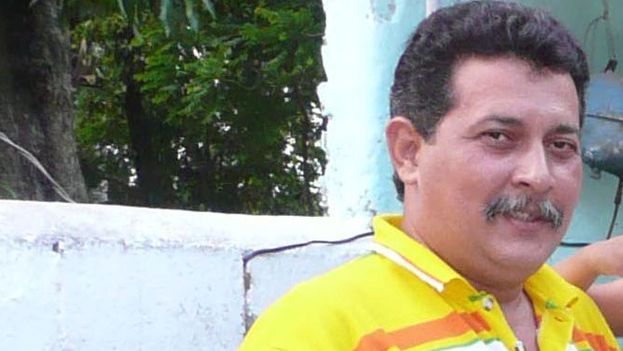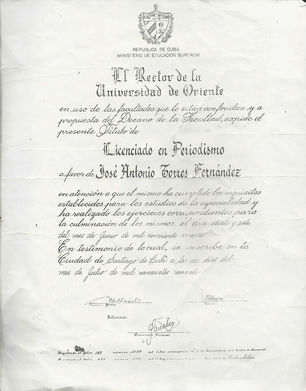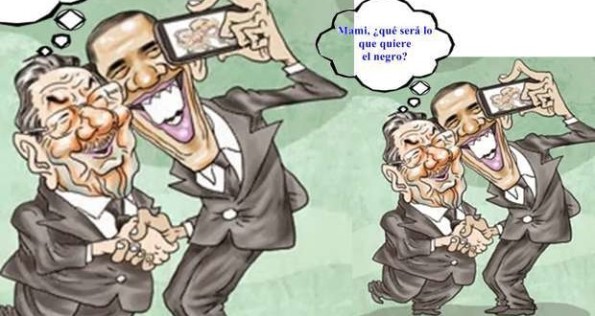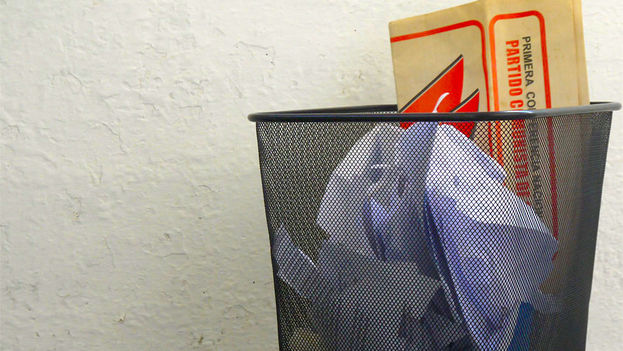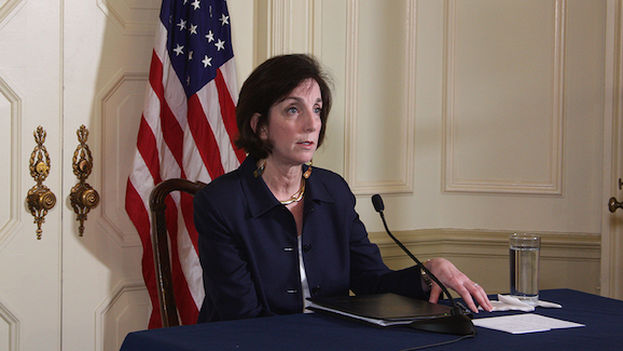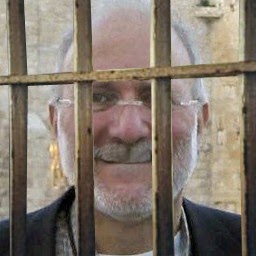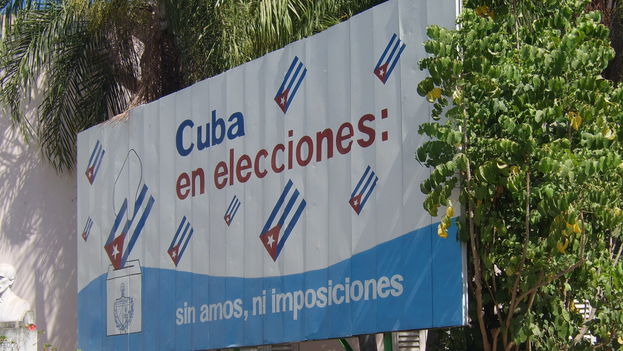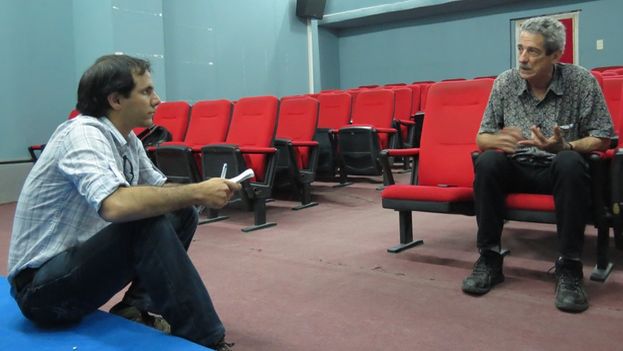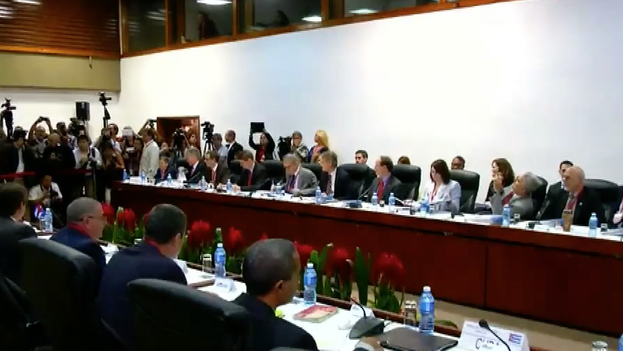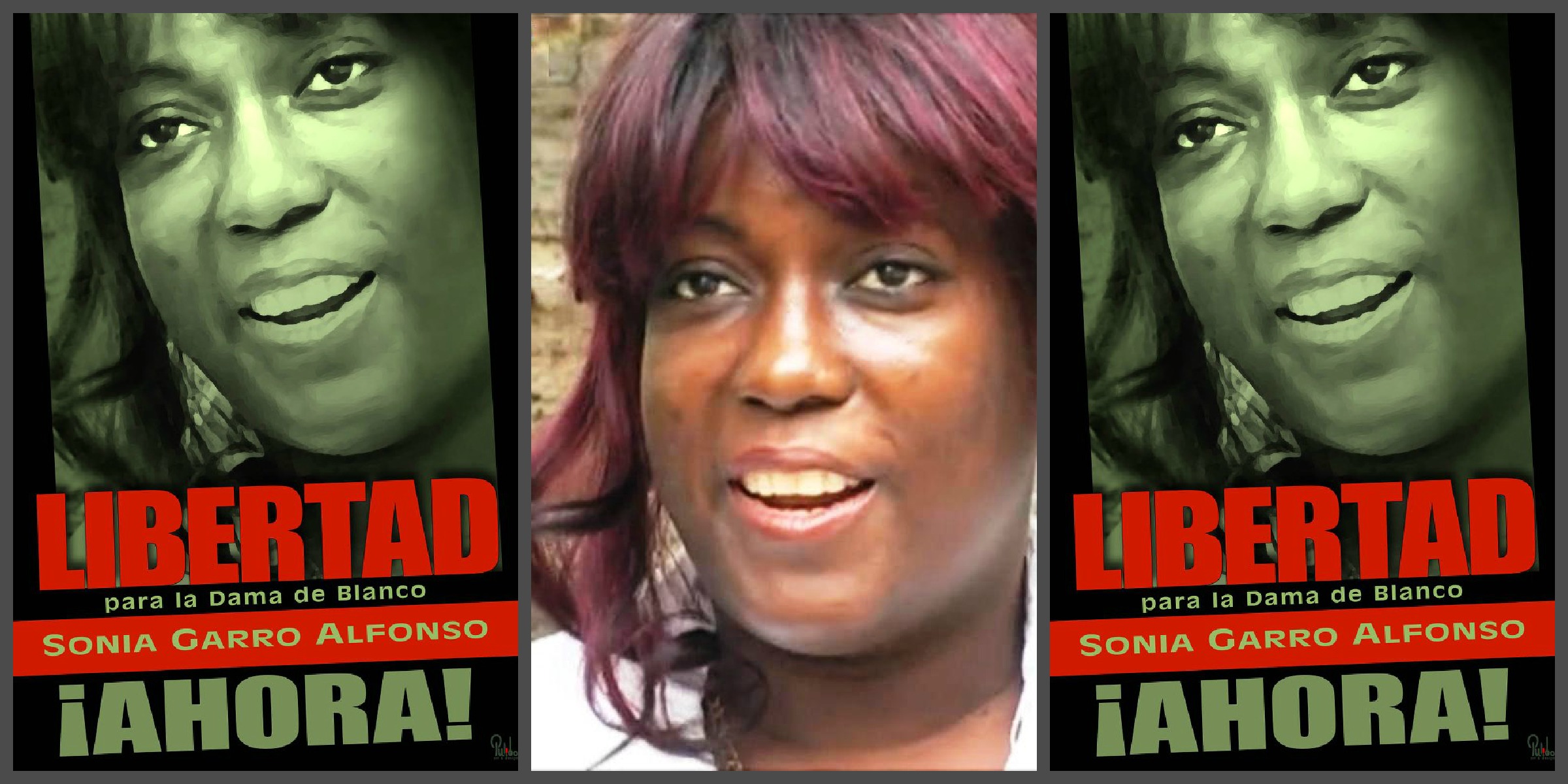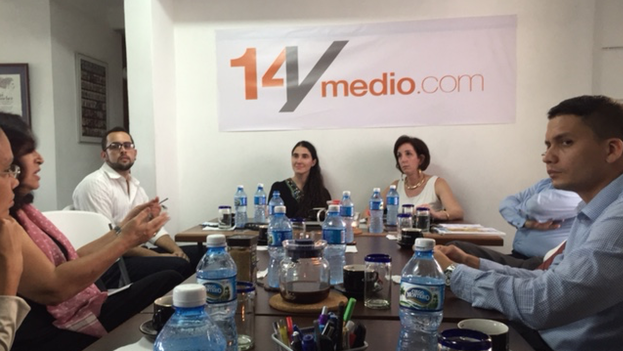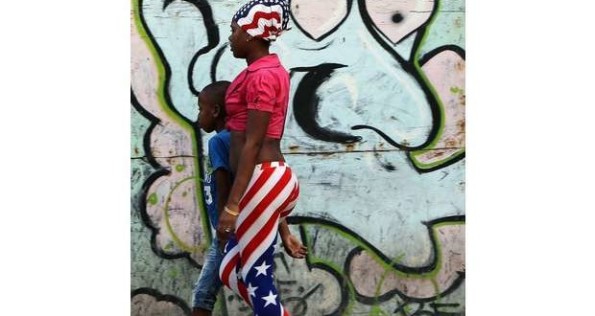
- El Sexto tells of his incarceration in the Valle Grande prison
14YMEDIO, Havana, 28 January 2015 — Danilo Maldonado, the graffiti artist known as El Sexto, finished a month in prison this January 25. He was arrested while riding in a taxi whose trunk was carrying two live pigs. The animals were painted green and each bore a name written on his side. On one could be read Fidel and on the other, Raul.
The artist’s intention was to release them in Central Park in order to recreate a rural tradition in which one tries to catch pigs with the added difficulty that their bodies are smeared with grease. His frustrated performance art was entitled Animal Farm, in Memoriam.
The light blue Lada that was transporting him was intercepted by three Revolutionary National Police patrol cars. The agents took away the identity cards of Danilo and the vehicle’s driver and took them to the Infanta and Manglar Station. Two days later, they transferred the artist to the Zapata and C unit where a prosecutor told him that he would be taken to trial. He stayed in those dungeons seven days until he was transferred to the central police station of Vivac de Calabazar, where he spent another seven days.
It happened that Vivac was the destination for dozens of arrestees accused of trying to participate in the performance announced by performance artist Tania Bruguera in the Plaza of the Revolution last December 30, which was interpreted by authorities as a counter-revolutionary provocation. Some of those arrested, who learned of his presence at the place, shouted, among other slogans, “Freedom for El Sexto.”
From the Valle Grande prison, where he is now, Danilo has sent us some jail anecdotes and a couple of drawings.
The Tank
When I arrived at Valle Grande they took blood samples for the lab, shaved my head and beard. They also photographed me. During my stay in Vivac, they had diagnosed me with pneumonia, for which reason I was carrying antibiotics with me, but they took them from me and have not seen fit to return them to me so far, nor has a doctor listened to my chest to find out if I am the same, better or worse than when I arrived here. To make matters worse, I am surrounded by smokers who do not care at all that I am sick and asthmatic. continue reading
I am in Company Four. They call this place “the tank,” and there are all kinds of people. I met four dissidents from Alturas de la Lisa. Yorlay Perez, Yusel Perez, Santiago Perez and Hanoy.
Fidelito
One day a boy came into the tank who said he knew me from the park and that he followed my work on the streets. This swarthy young man of small stature surprised me when he took off his pullover revealing on his back a tattoo of the face of Fidel Castro. I explained to him that I am an opponent of the Castro regime and that the gentleman he wore engraved on his skin was the one responsible for me being a prisoner.
He responded that he had no family and that he was a “son of the fatherland,” for which reason Fidel had given him a home, and that was not happening anywhere else in the world. I told him that was true, that if he had been born in another country no one would have given him a home, but maybe he could have sought it for himself and that really he owed nothing to Fidel. I told him of the case of Amaury Pacheco, who with a family of six children was harassed into an eviction from an abandoned house in the Alamar suburb, where they had gone so far as to refuse him water and electric service.
Later I found out through another boy, whom I met in Vedado, that it was said that he was with State Security and that he always had a pistol under his shirt. His acquaintances nicknamed him the Hoarse One, but I called him Fidelito.
This son of the fatherland was prisoner for falsification of documents, something he had done in order to leave the country. In a single night he tried to hang himself twice.
Yusel, the Opponent
In one of the constant inspections that they carry out here, a major and a second lieutenant thought that the fingernails of one prisoner were too long and that he had to cut them. He explained that he had no nail clippers, much less scissors. The major took a knife from his belt and threatened to cut his nails by force. The boy resisted and then the major told him that he had to bite them off.
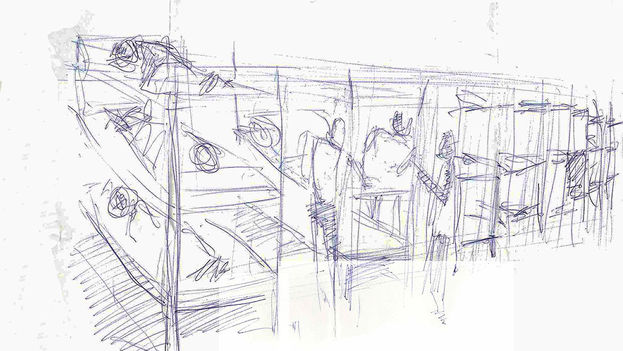
When they passed by the place where the opponent Yusel was, they noticed that he wore a white bracelet with the word Change on one of his wrists. As he did not obey the order to take it off, they forcibly snatched it from him. Then Yusel started yelling, “Down with the Castros, down with the dictatorship.” The second lieutenant cornered him against a bed to beat him but the rest of the prisoners got in the middle and prevented it. Things got hot but did not go further because the major started screaming that they were not going to beat him. Only then did the prisoners relax. Yusel was in a punishment cell for four days, but they did not beat him.
‘The Cigar’ that urinates
The Cigar arrived without a noise. Strong, tall, he must be between 60 and 70 years old, and he does not sleep. He said that he was a prisoner because he had threatened with a screwdriver some teens who were throwing a ball against the wall of his house. No one got close to him because he did not bathe. One day he urinated in the middle of the hallway, which was understood as “blackmail” for the other prisoners who would have to clean his filth. When they demanded that he wipe up that puddle, he said that he would do it with his clothes but they did not let him because that would mean enduring an even greater stench from him. We understood that he was going crazy the day that they read out loud the cards where our names and crimes appear. Then we learned his case: child sexual abuse.
To my Facebook friends and blog readers
I want to tell you that I really miss finding out about your trips and other events that are reflected in your accounts. I would also like to thank everyone who supported my cause and confess that none of my crazy things would have been possible if I had not known that I was not alone and that I count on the support of many of you. It is possible to fill hearts with hope. Evil will never overpower good. Retrograde minds will never overcome free minds. Violence will never overcome art and reason. Death will never overcome life and love.
I am going through an ordeal that has only been the legitimization of a good work and the confirmation of an iron dictatorship, which must be combatted with wit and cunning.
Believe me, sometimes I laugh alone in this dark place of 18 by 100 feet with 37 triple bunks, that is to say between 118 and 190 people plus those who sleep on the floor. I laugh even though the toilets are stuck next to each other without any privacy. I live happy because I live without fear and, although they persecute and harass my family, they will never manage to make a dent in my creativity. This time I believe they have been ridiculed like never before by anyone. Although they kept the pigs from getting to Central Park, all of us who have an imagination can see them running with their names engraved and people behind them like a true Animal Farm.
Ha, ha, ha. Hugs to all, and I wait to be able to read you.
Danilo Maldonado Machado
Translated by MLK

